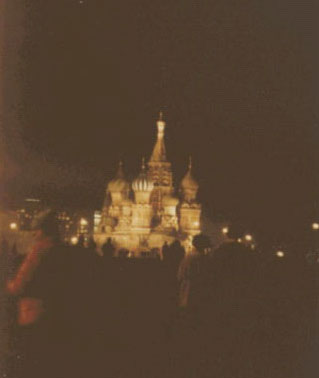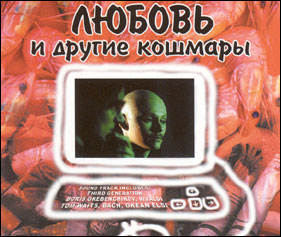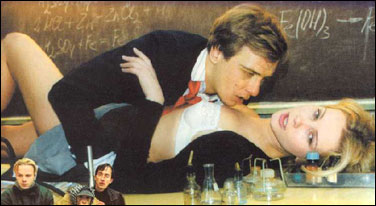Imaginary Homelands
Irina Sandomirskaja: Kniga o rodine. Opyt analiza diskursivnykh praktik [A Book About Home. Analysis of Discursive Practice]. Vienna 2001 (Wiener Slawistischer Almanach, Sonderband 50)
The changing face of Russian Rodina (meaning so much ore than just “motherland”) is maybe best exemplified by two photographs of Moscow’s landmark, St Basil’s Cathedral. The first was taken in 1978 during the period of stagnation, when rodina and its complementary terms otetchestvo (“fatherland”) and otchizna (“homeland”) had sunken to the status of clichés in the repressive discourse of the time.(Photograph by Mark Martin.)
Still, according to Baudrillard, the repressive … Read more







